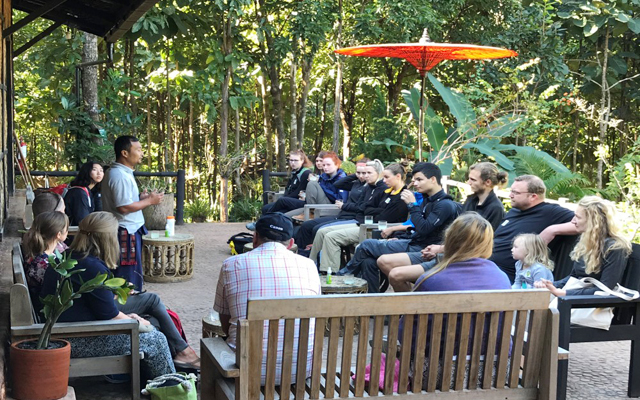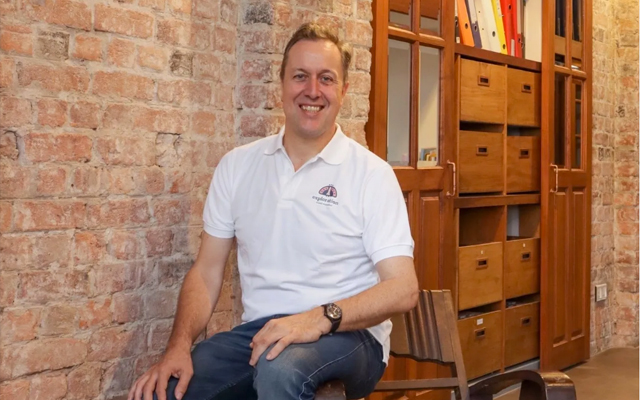With hardly any inbound travel to speak of, Myanmar tourism players have turned to other jobs to feed themselves but remain determined to return to the industry they hold dear
- Veteran tourism professionals are forced to leave the industry for other sources of income
- Military coup aggravates business challenges posed by the pandemic
- Most are ready to return to their tourism profession as soon as the time is right

A global pandemic and military coup may have devastated Myanmar’s tourism industry but they have failed to dent industry players’ strength. As they seek work elsewhere, they remain defiant in the face of adversity and are determined that tourism will return.
“Tourism is in my blood and I will always love this field. As soon as I can, I will return to the industry,” said Nann Thandar Thein, who has worked in the sector since graduating from high school. Like her peers countrywide, she has been forced to find work elsewhere after being dealt the double blow of Covid-19 and a military coup.
With a tourism background stretching more than a decade, Thein has had to turn her back on the industry she loves. Today, she is a deputy logistics coordinator for an international organisation working to improve healthcare countrywide.
“They asked me if I will return to tourism once it’s possible,” she said. “I immediately said yes.”
Elsewhere, tourism workers have become taxi drivers, started online businesses or joined tour operators abroad. Others have joined the resistance and another has transformed into a fortune teller. Their replacement jobs may vary, but they share one thing in common – a deep desire to return to tourism.
Edwin Briels, managing director of Exploration Travel Myanmar, said: “As it’s a double crisis and international tourism has completely stopped, most people working in tourism are adapting by finding jobs in different industries or overseas. As always, people have shown character by continuously trying to support the poorest people and help each other.”
Green Hill Valley (GHV), a family-run ethical elephant camp in Southern Shan State, has been hit hard. Since starting operations in 2011 with six employees, the camp grew to employ 40 workers and care for eight elephants in 2020. Today, it struggles with a team of 14 and three elephants.
General manager Tin Win Maw said GHV ran several social and environmental programmes, such as replanting, making recycled paper from elephant poop, agriculture projects and livelihood projects. Many have halted, with two government-owned elephants returned after the coup due to annual rental payments being severed.
“The Covid pandemic is bad, but we can handle that with our sustainable works. The military coup is worse. Everything becomes complicated, backwards and hopeless for the future of us. GHV can’t operate our standards of monthly elephant veterinary care and salaries for employees. It’s challenging, but we keep going,” said Maw.
In an attempt to find income to support wages, GHV started a roadside café. While it is able to generate a small amount of cash, the reluctance for anything but essential travel is hampering business.
Maw said: “Myanmar’s tourism industry is suffering chronic illness with the pandemic and politics. But the resilience of Myanmar people is equivalent to our community spirit – always alive.”

When Covid first hit, Briels’ team was busy rebranding Khiri Travel Myanmar back to Exploration Travel Myanmar. As the pressures of the pandemic deepened, the tour operator started to support sister company, Counselling Corner. After the coup, demand dramatically increased and three Exploration Travel staff dedicated their time to support this vital service.
“They saw the Counselling Corner team become very busy answering requests, giving information about products, marketing, filling in tender contracts, making reservations etc. These jobs are similar to those at a travel agency; just a different product,” said Briels.
As countries across the region start to relax restrictions, Myanmar seems a long way off. On the ground, domestic tourism has struggled to flourish. High inflation, the devaluation of currency, and banks refusing to give people their savings means many do not have the means to travel.
Furthermore, daily blackouts that leave areas without electricity for an average of four to six hours, but often up to 12 hours, mean it is too expensive for many hotels to operate.
A recent announcement revealed commercial flights will restart from April 18, but, for now, there has been no mention of reissuing tourist visas.
Thein harbours faint hopes that some form of tourism will return. She recalls working in the industry before Aung San Suu Kyi came into power.
“Before our country opened, we did have tourism. If the borders open now, I think some people will want to come to Myanmar. Not as many, maybe 50 per cent, but we have to wait for this period,” she said.
However, others remain less optimistic.
Zaw Min Oo has been a tour guide since 2003 and started Green Season Travel in 2017. In November 2020, he founded Ko Jack’s Country Home offering day trips from Yangon. It was a success until the February 2021 coup. Today, he teaches English and drives a taxi. “I’ll never leave tourism; I’m just trying to stay in survival mode during this very hard time. I can’t foresee the future of tourism right now,” he said.
Unchartered Horizons Myanmar is one of a handful of tour companies still operating. However, it is limited to one-day tours of Yangon, with guests running as low as 0 to 25 per cent of pre-covid levels.
Founder Jochen Meissner said: “We don’t expect much, but hopefully it will revive the tourism sector a bit. Of course, as long as the political situation is as it is, it’s very hard to promote tourism to Myanmar internationally. But we’ll stay committed to the people of Myanmar – we’ll be ready.”




















